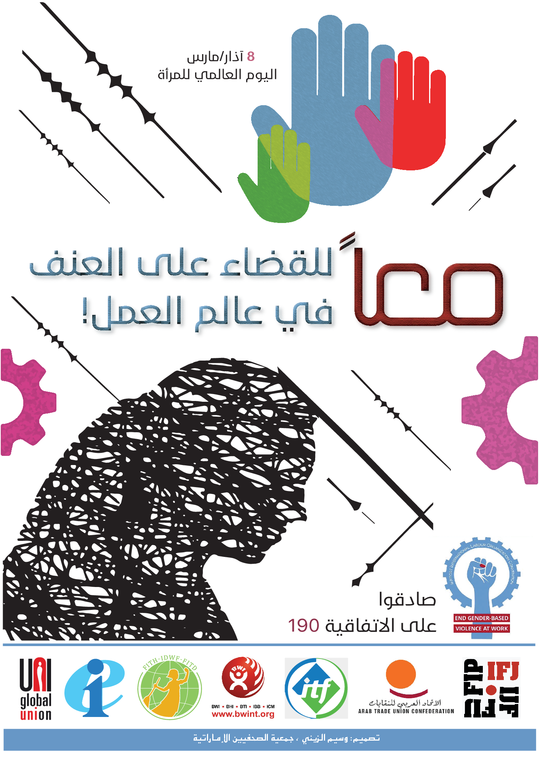Full statement:
International Women’s Day has been celebrated around the world since 1910. Since that time, we have made a lot of progress in advancing women’s rights and gender equality, but much remain to be done. The Women, Business and Law 2021 Report, published by the World Bank on February 23, reflects the bleak reality of women's human rights equality in our region. The Middle East and North Africa recorded the lowest average inequality around the world at 51.5%. Eight Arab countries came among the ten lowest ranking countries out of 190 countries covered in the report.
The COVID 19 pandemic has affected the world globally, in the Arab region the crisis has exposed serious vulnerabilities in its societies, institutions and economies. The crisis has also amplified gender inequalities.
As we battle the COVID-19 pandemic, we see women spearheading the response to the crisis. The pandemic has been a stark reminder that crisis impacts women and men differently, it has exacerbated the challenges women usually face.
Since the outbreak of COVID 19, reports showed that all types of violence against women and girls has intensified.
The health and social crisis have also shown how vital, yet economically underestimated, the value of the services provided by workers, in essential services, among whom women, often migrant women, predominate.
The cases of violence and harassment in the world of work and online has also increased. One of the major impacts is the economic violence experienced by women consisting of unlawful closure of worksites, job suspension and the loss of employment, family unpaid care work, and others.
Urgent action needs to be taken in the context of the COVID 19 crisis and beyond to ensure everyone’s right to world of work free from violence and harassment. Also, to build a sustainable recovery and better resilience in the face of futures crises.
Addressing violence and harassment at the world of work has been a priority for all Global Union Federations and their members worldwide, the work in this area has become even more relevant than ever.
Efforts to ratify C 190 and implement both the Convention and Recommendation need to be a key element of response and recovery measures.
The convention provides a foundation for trade unions and other stakeholders to address violence and harassment at the world of work. And it extends to all sectors – public and private – as well as the informal economy.
Trade unions are part of the solution and mirrors of society, eliminating violence and harassment will come with a shift in norms, practices, and behaviours.
Together, we are lobbying governments worldwide to ratify this landmark convention and are pushing to make the elimination of workplace violence and harassment a reality.
The ILO C190 represents an important step towards the protection of female workers, converging into the broader fight for gender equality.
Gender equality is a human rights issue that affects us all and is central to the democratic functioning of our unions and our societies. As unionists, we must never forget that we are at the forefront of this struggle.
We also recognise, however, that the struggle for gender equality within unions and in the wider society, is ongoing.
Therefore, we call on all GUFs and their members to re-new their commitment to gender equality and take action for a World of work free of violence and harassment by:
- Urging government in the Arab region to ratify the ILO C190 as well the implementation of the Recommendation 206 at the national, sectoral and workplace level.
- Enhance the knowledge and raise awareness about violence and harassment at the workplace, including by collecting and publishing data, and documenting occurrences.
- Prepare and complete periodic reports for the national governments and the International Labour Organization,
- State the importance of the convention in social dialogue and pushing to include it as clause in collective bargaining agreements for better protection.
Signatories:
IFJ
ATUC
EI
PSI
BWI
UNI
IDWF
ITF

